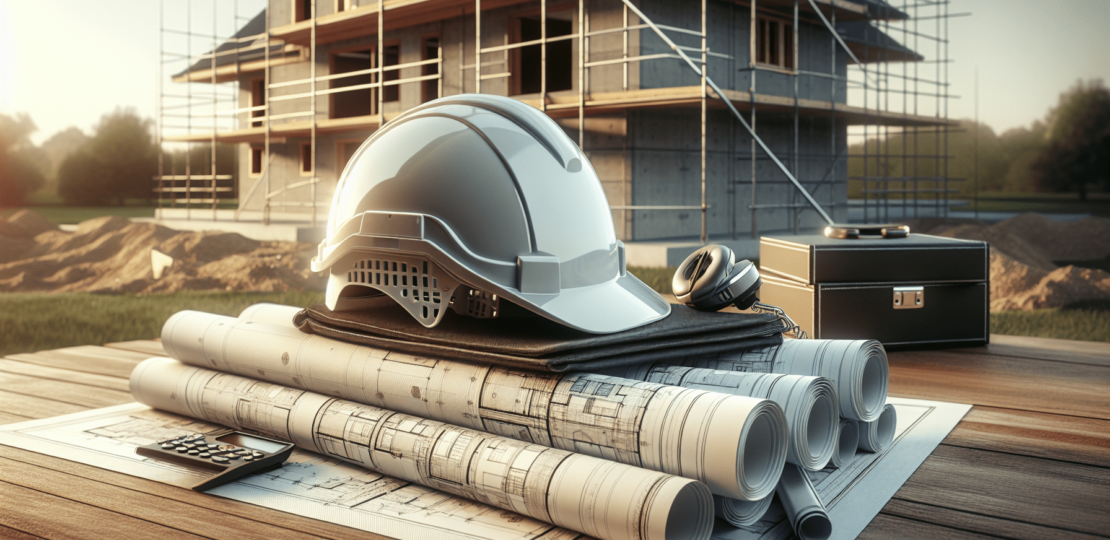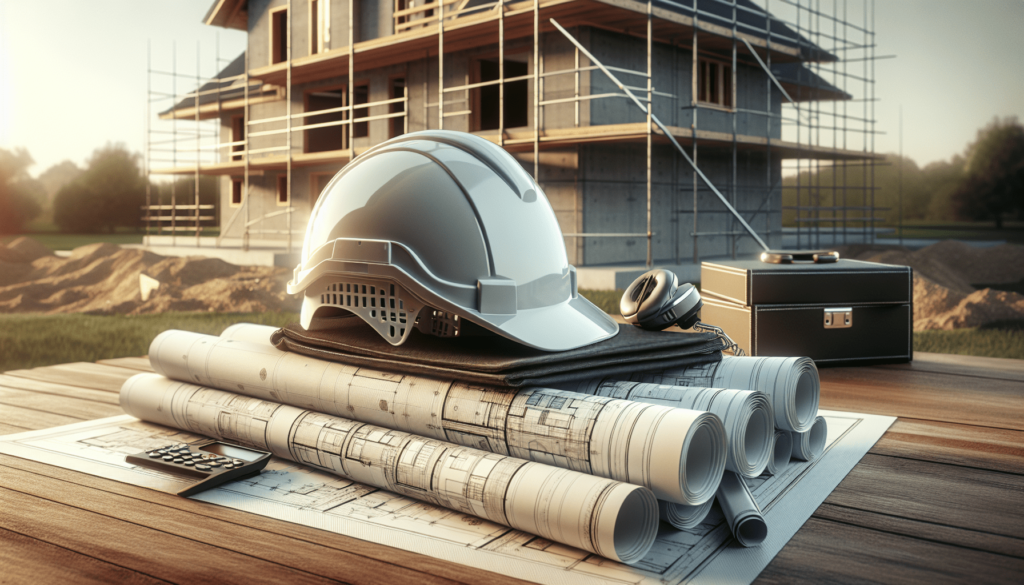What Is A Good Interest Rate On A Construction Loan?
October 17, 2024 | by neoguruman@gmail.com

What happens when you’re ready to build your dream home? Have you thought about the financial aspect of it, specifically the construction loan?
When it comes to financing the construction of a new home, understanding interest rates is crucial. You may be asking yourself, “What is a good interest rate on a construction loan?” In this guide, you’ll discover what a good rate looks like and how to approach securing that rate.

Understanding Construction Loans
Construction loans are short-term loans specifically designed to cover the costs of building a new home. Unlike traditional mortgages, which might last for 15 to 30 years, construction loans often have a shorter term, typically around 6 to 12 months.
You will want to be well-informed about the different types of construction loans available to you, as various options may affect your interest rate.
Types of Construction Loans
There are generally three main types of construction loans:
-
Construction-to-Permanent Loans: These loans begin as a construction loan and convert into a permanent mortgage once the building is complete. This can simplify your financial situation, covering both the construction and the long-term financing in one loan.
-
Construction-Only Loans: This type is designed specifically for the building phase. Once the construction is complete, you’ll need to secure a separate mortgage to pay off the construction loan. While they may come with lower interest rates, they can add complexity to your overall financial plan.
-
Owner-Builder Loans: If you’re considering building your home yourself, these loans are an option to look into. However, they often require more qualifications and proof of experience in home building, as lenders view you as more of a risk.
Each loan type comes with its own pros and cons, and understanding them will help you determine which suits your needs best.
What Determines Construction Loan Interest Rates?
When you’re searching for the best interest rate on a construction loan, it’s essential to recognize the factors that can influence these rates. Here’s a rundown of the primary components:
Credit Score
Your credit score plays a significant role in determining your interest rate. Lenders often prefer borrowers with higher credit scores because they are perceived as less risky. To get a good interest rate, you should aim for a credit score of at least 680. Here’s a simple guide:
| Credit Score Range | Rating | Interest Rate Expectation |
|---|---|---|
| 300 – 579 | Poor | Higher interest rates |
| 580 – 669 | Fair | Moderate interest rates |
| 670 – 739 | Good | Competitive interest rates |
| 740 – 799 | Very Good | Great interest rates |
| 800 – 850 | Excellent | Very low interest rates |
Loan-to-Value Ratio (LTV)
The loan-to-value ratio is calculated by dividing the amount of the loan by the appraised value of the property. Lower ratios typically signal lower risk for lenders, leading to better interest rates. Most lenders expect an LTV ratio of 80% or less for construction loans. Keep this in mind as you plan your financing.
Type of Loan and Loan Amount
The specific type of construction loan you choose and the total amount you borrow can affect your interest rate. Generally, higher loan amounts lead to lower rates, as lenders often see larger loans as less risky.
Location
Where you plan to build your home also influences your interest rate. Some regions may have higher rates due to increased risk factors, such as natural disasters or economic changes. Be sure to consider how location may impact your interests when assessing different lenders.
The Average Interest Rate for Construction Loans
The average construction loan interest rate can vary greatly depending on many factors, including your financial profile and market conditions. As of now, average rates can range from 3% to 6%, but they can vary based on economic fluctuations and the lender you choose.
It’s also important to note the term duration. While shorter terms may have lower rates, be cautious: they may carry different risks than long-term financing.
| Construction Loan Type | Average Interest Rate Range |
|---|---|
| Construction-to-Permanent | 3% – 5.5% |
| Construction-Only | 4% – 6% |
| Owner-Builder | 4.5% – 7% |
How to Secure a Good Interest Rate
Having an understanding of how to secure a favorable interest rate can save you a significant amount of money over time. Here are some tips to consider:
Improve Your Credit Score
Before applying for a loan, take the time to assess your credit score and consider ways to boost it, such as paying off debts and correcting any errors on your credit report.
Save for a Larger Down Payment
If you can afford to put down a larger down payment, this can significantly reduce your LTV ratio, making you a more attractive candidate for lenders and potentially lowering your interest rate.
Compare Lenders
Don’t settle for the first offer you receive. Take the time to compare different lenders and their rates. Different lenders may offer varying terms, and finding the right one for your needs can be a game-changer.
Lock in Your Rate
If you’re confident about a specific lender and their rates, consider locking in your interest rate. Rate locks can protect you from potential rate increases during the construction period.
Pros and Cons of Construction Loans
Understanding the strengths and weaknesses of construction loans can help you make an informed decision. Here’s a list to guide you.
Pros
- Financing Flexibility: Construction loans often provide flexibility in managing payments and financing options.
- Personalization: You can create your dream home with construction loans since they allow for customized builds.
- Higher Loan Amounts: Many construction loans provide higher amounts for your project, allowing for more extensive plans.
Cons
- Higher Interest Rates: Generally, construction loans may come with higher interest rates compared to traditional mortgages.
- Temporary Financing: Successfully managing a temporary loan can be tricky, especially if your credit is not well-prepared for long-term financing.
- Funding Challenges: Securing a construction loan can be more complex than obtaining a traditional mortgage, requiring more documentation and proof of project feasibility.
Conclusion
Finding a good interest rate on a construction loan can sometimes feel overwhelming due to the various factors involved. Armed with knowledge about the types of loans, credit scores, and strategies for securing favorable terms, you can set yourself up for financial success on your path to building your new home.
Remember, a good interest rate is not just a number but a reflection of your overall financial health and the specific loan type you choose. Take the time to compare options, improve your financial standing, and consult various lenders. Your dream home is closer than you think, and you can make the financing part of it as smooth as possible. Happy building!
RELATED POSTS
View all
